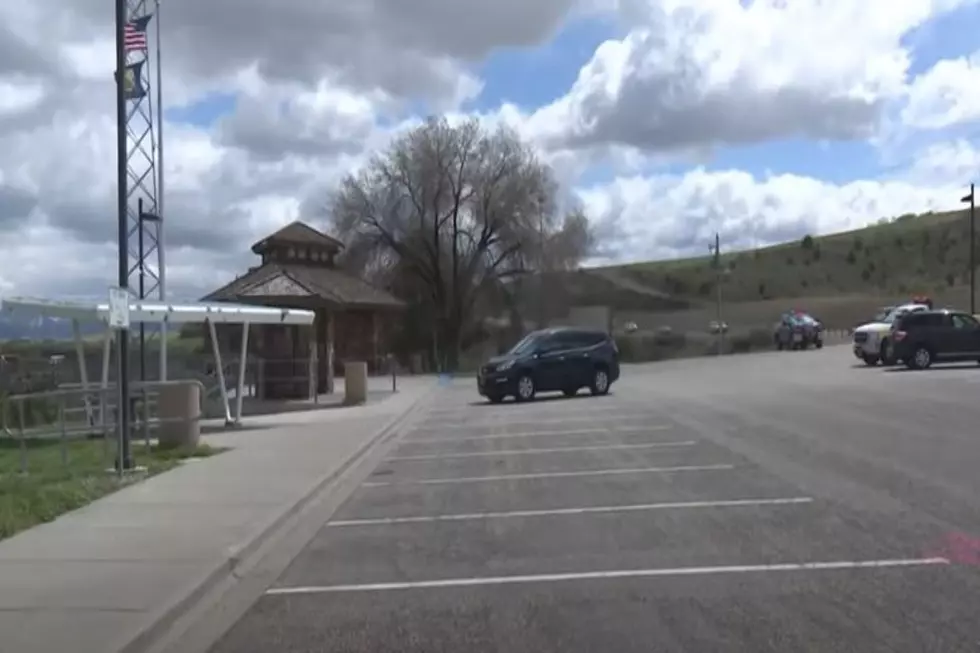
Rex Rammell Arrested At News Conference
An Idaho politician arrested on his way to a news conference, is facing charges of influencing a jury. Rex Rammell is a former gubernatorial candidate, who was awaiting trial for illegal possession of an elk. Rammell said he thought the tag he had allowed him to hunt in any area. But now he's facing another charge. Rammell had announced a news conference to answer the influencing a jury charge, and according to Rammell, to turn himself in. But he never made it. Three Bonneville County Deputies were waiting for Rammell, arresting him before he got to the Bonneville County courthouse. Rammell says he's being charged for handing out fliers detailing juror’s rights. Information he says he got off of the internet. "The Jury's Secret Power,"directs the jurors to follow their conscience and judge the law, as well as the facts. n Idaho, it's a felony for anyone to attempt to corruptly influence a juror, like with written communication. After an investigation, a warrant was issued for Rammell's arrest Tuesday, and he was taken into custody today. Rammell is out on bond. He will be back in court for the poaching charge on June 30th.
Rammell will join "Top Story" hosts Kelly Klaas and Jill Skeem, Friday morning at 8:05 AM, to explain just what took place at the courthouse and why. "Top Story with Kelly Klaas and Jill Skeem" airs 8:05-10:00 AM Monday through Friday right here on News Radio 1310 KLIX.
Below is a copy of Rammell's document:
"The Jury’s Secret Power"
JUDGES MAY NOT TELL YOU THIS, but when you sit on a jury, you have the right to vote according to your conscience and to judge the law being applied to the case. As a juror, you are the final safeguard for justice. It's the judge's obligation to give the jury the wording of the law being applied to the case. If the judge fails to provide the wording of the law or you think the law he gives you is a bad or unconstitutional law or a good law being improperly applied, or there are other factors that would make you regret a vote to convict someone, then it is your right and duty as a juror to vote “Not Guilty” even if you are the only juror who does and you therefore “hang” the jury. You cannot be punished for the way you vote.
Our lawmakers sometimes pass bad laws, and, at times, good laws have been misused. Throughout history reasoning jurors have refused to convict fellow citizens who were accused of breaking the law: They freed tax protesters during the Whiskey Rebellion of 1794, refused to convict those who aided runaway slaves in violation of the Fugitive Slave Act of 1850, freed bootleggers charged during Prohibition 1920-30, and released Vietnam War objectors 1960-70.
When our country was young, all jurors were told of their right to judge the law, as well as the facts of the case. Then judges decided that juries should no longer be told of their power to act as a safeguard against bad laws or unethical lawmakers. Now, all jurors are instructed to accept the law as it is given to them by the judge, even in cases where the law is clearly unjust.
But now you know the secret: If you are selected as a juror, you have the right and duty to do the right thing: to follow your conscience and to judge the law as well as the facts of the case. It is the only way to keep government in the hands of the people.
John Adams, our second president, had this to say about the juror: "It is not only his right but his duty...to find the verdict according to his own best understanding, judgment, and conscience, though in direct opposition to the direction of the court."
In 1972 the D.C. Circuit Court of Appeals held that the trial jury has an "...unreviewable and irreversible power...to acquit in disregard of the instruction on the law given by the trial judge.
For more information, please contact the Fully Informed Jury Association:
www.fija.org
More From News Radio 1310 KLIX









